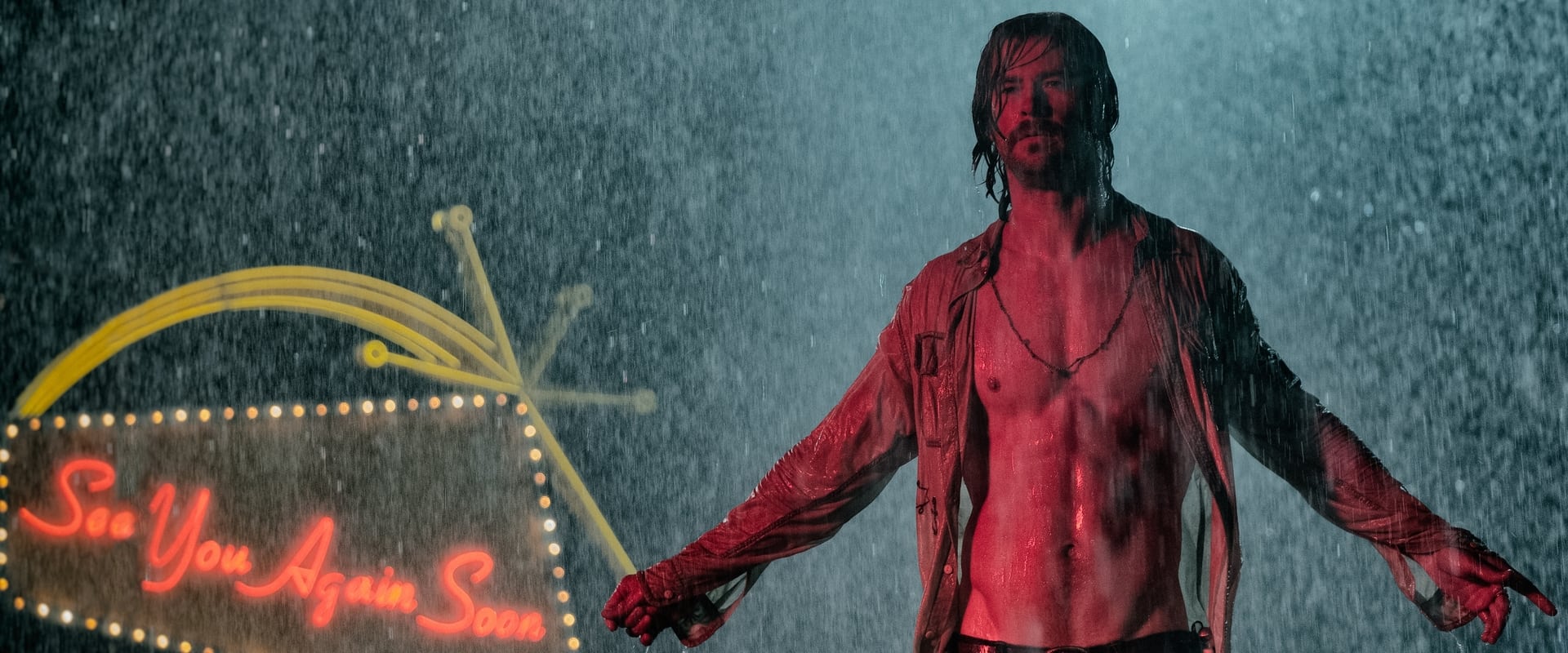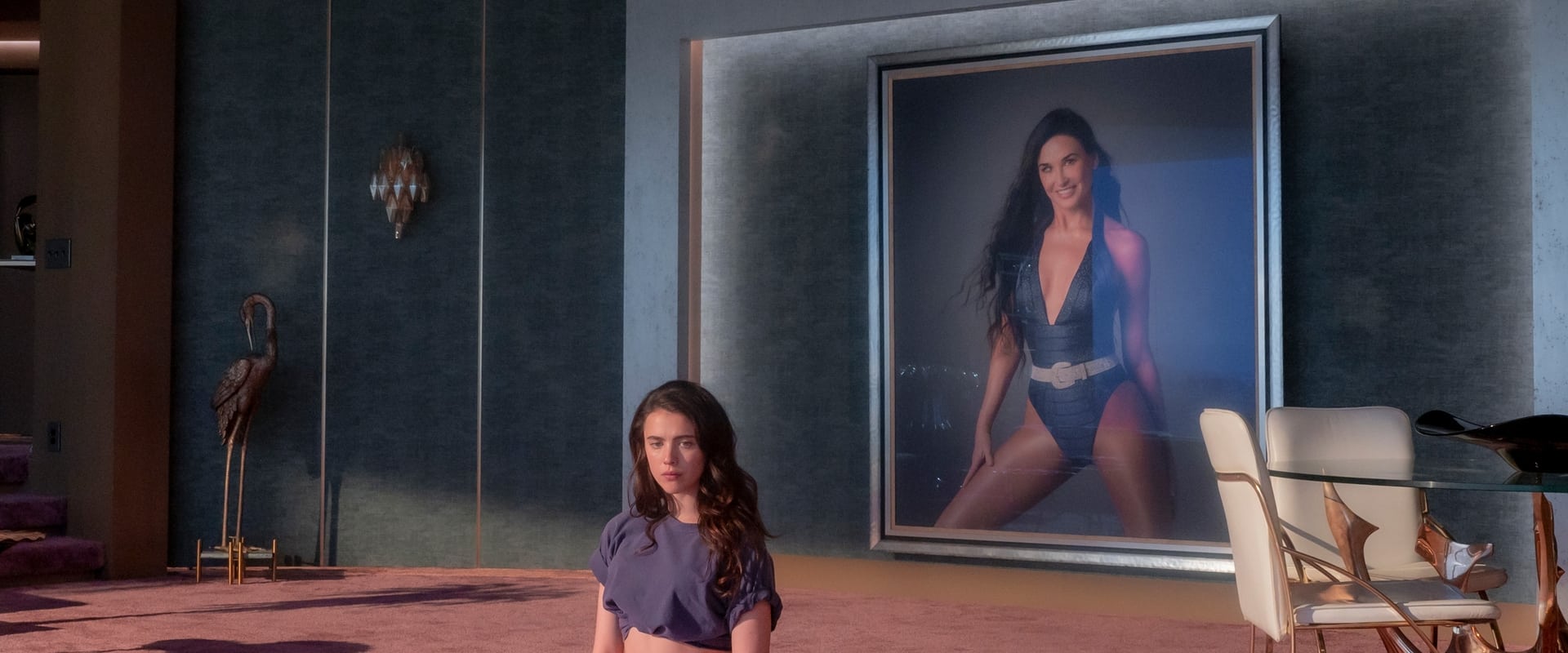If ever a film strutted in wearing Vegas fringe and a confession booth hangover, it’s “Bad Times at the El Royale.” Drew Goddard’s caper comes at you as if to say, “Sure, you’ve seen the corpse of American optimism before, sprawled out in a cheap motel—let’s see if it can still dance.” And for a while, under the hot glare of Seamus McGarvey’s cinematography, it does. The place looks like it was pried loose from a Sinatra fever dream: shag carpeting, artifice, sex lurking in the drapes. Retro isn’t decor here—it’s a cancer that’s metastasized into the bones.
We begin with a premise—battered strangers checking into a hotel hugging the California-Nevada state line—that most directors would keep tidy, maybe even plausible. Goddard, deliciously, wants no part of good manners. “Plot” becomes a game of musical chairs played after midnight and one bottle too many. The El Royale doesn’t just straddle a border—it straddles genre, morality, history. You can practically hear the Nixon tapes playing in the ducts.
Jeff Bridges gives us a “priest” (in quotes, because this is America and nothing labeled holy stays holy for long), and there’s a scammer vacuum salesman, a singer clutching her loneliness like a last cigarette, a cult Adonis who might have washed up from a Beach Boys murder ballad. These people don’t just check in, they drag entire subplots by the hair—every one of them burnished in the acid glow of postwar guilt and Cinerama deceit. Goddard keeps peeling layers until you wonder if he’s after the characters’ souls or just draining the narrative for more pulp.
The structure is one of those split timelines that critics love to call “audacious,” when really it’s just an excuse to cut the threads and see if the audience will applaud the knot. But Goddard, the trickster, lets you think you’re solving a puzzle, all while he's stacking the deck with loaded aces. The real pleasure isn’t in guessing what happens next, but in the kick of never knowing whose truth just curdled on the screen.
But let’s cut to what the movies are for—the charge that hits you below the sternum. Cynthia Erivo’s Darlene: what a revelation. She stands there, dignity flickering like the last working bulb in the sign, and gives you something no special effect could ever rival—the ache of fear, the ache of dreaming, the ache of sound itself. When she sings, it isn’t just an aural treat—it’s a benediction over every sorry hash of hope smeared across the highway in this country. Erivo’s voice is the last candle burning after someone’s kicked out the stained-glass windows.
Chris Hemsworth, meanwhile, sashays in late but, oh, how he frolics—half-Jesus, half-Jim Morrison, wholly predatory. He’s a Manson-lite, pelvis and promises, flicking his tongue at the worshippers like the serpent in a youth-pastor’s wet dream. Hemsworth drops all his superhero muscle and plays evil with a kind of ecstatic vacancy, as if the only real high left in America is nostalgia for an apocalypse we didn’t quite get.
The hotel itself is kneaded together out of film criticism: it’s the Overlook by way of Reno, a memory palace where every room is booby-trapped with the lies we tell to get through a nation’s hangover. Cinematographer McGarvey damns the place up in lurid pink and toxic gold—the colors of old money and new wounds. You could get drunk on the wallpaper alone.
Music? Please. Most movies decorate with pop; “El Royale” sweats it. The jukebox numbers land in the scenes like telegrams from doomed sweethearts. Erivo’s “This Old Heart of Mine” would bring tears to a jukebox repairman. Goddard doesn’t just drop the needle, he rubs it raw until song and story bleed together. The film’s real climax isn’t a gunshot but the silence that follows the last note.
But for all the narrative backflips and double-crosses, what you really taste here is the smoke and shame at the end of the road—whether you call it 1969 or just last night. Goddard dangles redemption like a room key we’ll never find. Is anyone pure? Is anyone even real? It hardly matters; movies like this don’t let you off that easy. The only thing sacred is survival, and even that’s up for auction by the closing credits.
You want hope, go hug a Disney Blu-ray. “Bad Times at the El Royale” is the afterparty, a last, risky bet on what’s left in the American character after all the chips—and most of the illusions—are gone. I left the theater rattled, grinning, and just a little bit dirty. Which is to say: I had a hell of a good time.


